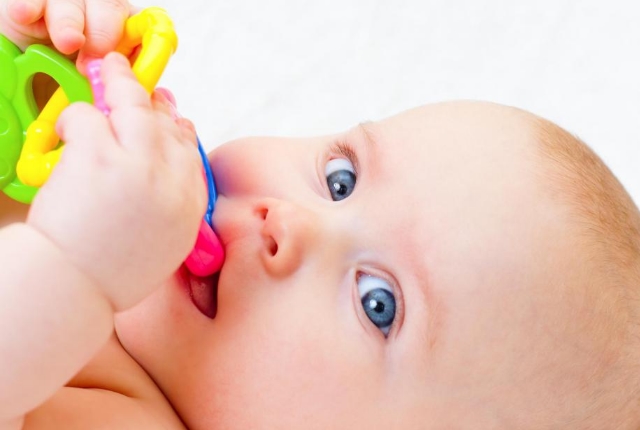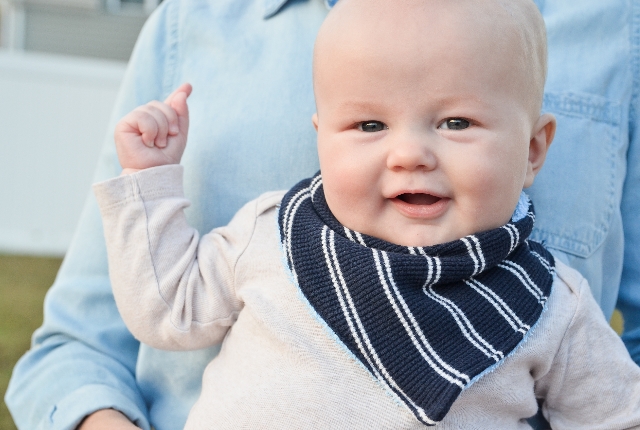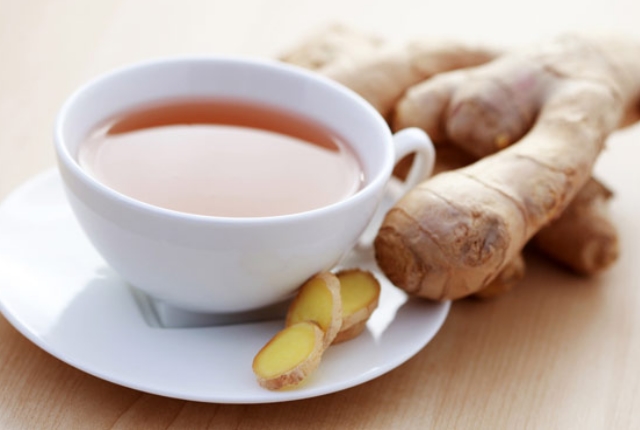Table of Contents
The medical name of drooling is Sialorrhea. It is the flow of saliva, the watery substance located in the mouth, outside it. Swallowing problems (including dysphagia), saliva incontinence (inability to retain the saliva), and excessive secretion of saliva are the causes of drooling. Presence of isolated drooling in babies (no other disease symptoms or abnormalities shown by the baby) is normal and does not signify any complication. The babies get affected by drooling while teething, or when they catch a cold. Drooling may be associated with teething and with conditions like nasal allergies. Respiratory infections worsen it.
Drooling can occur in babies/toddlers because of a neurological disorder like Cerebral Palsy also. Other causes of drooling include intellectual disability, stroke, adenoid tumors, amyotrophic lateral sclerosis, mercury poisoning and rabies. Drooling, when accompanied by fever, can also be a sign of infectious diseases like Tonsillitis, Peritonsillar Abscess and Strep Throat. Home remedies are quite efficient in treating drooling in babies. They can be provided at no or lesser costs and exert no side effects.
Here Are 7 Home Remedies For Drooling In Babies
1. Teething Ring/Wet Wash Cloth
Teething is the major cause of drooling in babies. If the baby is not sleeping well, is not eating in a proper manner or is crying more than what he should and drooling, he may be suffering from painful teeth origination. To treat the condition, place a wet and clean washcloth or a teething ring in the refrigerator for about an hour. Later, move it from the refrigerator and allow your baby to chew on it. The measure would control drooling soon.
2. Rubbing Of Gums
The gums of the baby may face excessive pressure while teething. For relieving the pressure, wash your hands by using a disinfectant soap and rub the gums of the baby gently.
3. Cold Water/Diluted Juices
The baby may also drool when he catches a cold, or is having a sore throat because of some other reason. The throat of the baby might be hurting, and he would not want/like to swallow anything. You can offer the baby mild cold water or some diluted juice between his regular meals, so that his throat remains moist. Drooling will lessen this way.
4. Chewing On Cold Food Items
Chewing of cold food items, including ice creams and ice pops, can soothe the pressurized gums of the toddlers and babies. You can also provide them some other cold food as well. Provide the treatment under supervision so that the baby does not suffer from choking.
5. Limit The Intake Of Sweet/Sugary Foods
Intake of foods high in sugar leads to excessive flow of saliva, as saliva contains the enzyme amylase that breaks down starch. If your toddler/baby is drooling, do not offer him sugary foods and sweet edibles.
6. Use Handkerchief
The child may have lip and chin skin breakouts during the period of drooling and excessive salivation. Ask your baby to use the handkerchief regularly, so that all his/her body areas, including the mouth, remain clean and dry. Better hygiene will lower the chances of infections as well.
7. Ginger Tea
Ginger is good for digestion and its consumption can regulate the flow of saliva. You can give ginger candies or ginger tea to your toddler for preventing or stopping excessive flow of saliva. If the home remedies fail to stop drooling, you should consult a physician. An expert examination and diagnosis will reveal the true cause of it, and will also reveal other medical conditions that the toddler may be affected by.







